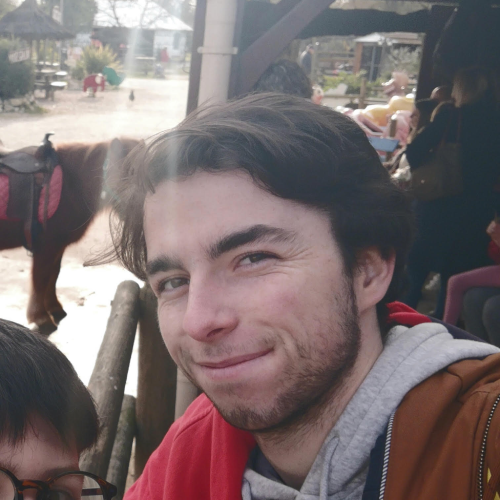

Artur Jolimay-Groener participated in the ‘science without borders’ virtual exchange as a student of biology at the University of Bordeaux. He is currently doing a masters’ degree in microbiology and immunology.
Artur participated in André Benine’s VE/COIL with students from the University of Cincinnati in the US. He explains how they worked in groups of four for this virtual exchange: two French and two from Cincinnati.
“We had a great subject to research and talk about,’ laughs Artur, ‘it was longevity and how to make humans live longer and the biology involved in such an experiment! It was a little complicated in terms of having different time zones, but we managed to make it work out fine in the end.”
Skills developed during the science virtual exchange
Artur explains the students were very much left to their own devices during the VE.
“We had to send André regular reports so he could check our progress during the virtual exchange project. And for me, I have to admit that I was not confident about my English language level when I began this collaboration. But I learned some really useful vocabulary for biology which will be great in the future for my studies. I had to improve my organisational skills and it was important to get on well so we could do the work together. French and American culture is quite different so I had to work on understanding that”, he adds, smiling.
For this iteration of the VE, André explains that the US students came to Bordeaux, but the French students did not visit the US for various reasons. Therefore, the zoom calls came in useful, especially to get to know each other, he explains. He says he also did not know his French partner, so it was important to set aside time for chit chat.
Timetable hiccups in the VE collaboration
“One major thing during the VE exchange was that one American student was a new mum so this added to the challenge,’ says Artur. For the French side, late evenings corresponded to afternoon time and this proved to be the best solution in terms of finding a suitable time slot for our online meetings.
Another aspect that impacted were other people’s timetable commitments. Artur says he had more free time compared to the others, so it was harder to pin people down for the tasks of writing articles and preparing slides. He says it was a little complicated at the start but they managed to accommodate each other’s needs with a little effort and understanding.
An international mindset
“For me, says Artur, ‘it was important to understand if I wanted to travel abroad to study. And now I know I want to travel and meet new people and also do this in a new language.“
Because the participants were coming from different disciplines, he also absorbed a lot of knowledge from these different fields of sciences. “It was great to see and hear other points of view.”
The peer-to-peer learning really added to it all. As a result of this international exchange experience, Artur has made the decision to go abroad next year do an internship for 6 months. He says the VE confirmed his first intuition. “This is my big project I am working on now and I hope I can go wherever I want.”
Communication is key
Artur wants other students considering doing a VE to just go for it. It is a confidence-building experience as he was not at all confident about his English. And more specifically, he worried about his knowledge of scientific vocabulary.
“Your language level doesn’t matter in the end. During a virtual exchange, it’s all about motivation and you can make yourself understood in many ways: use your hands and use translators. You can’t lose. It’s a win-win situation. All forms of communication are fine”, he laughs.
And one more thing! “If you want to come to France, Paris isn’t always the best option. Come to Bordeaux instead!”
